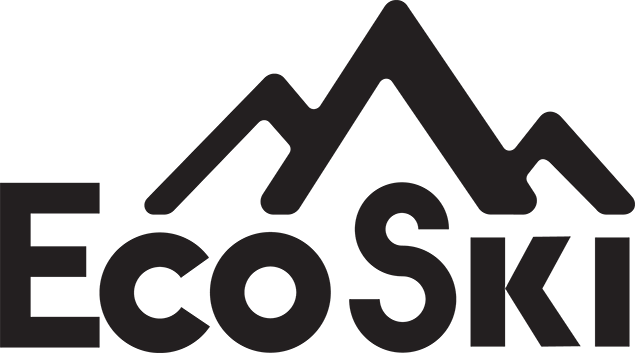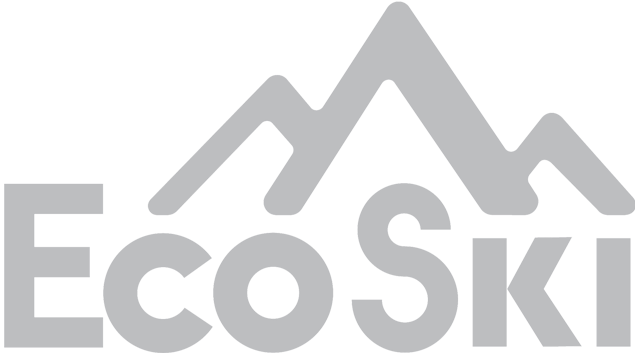Angora fur comes from a particularly fluffy species of rabbit. This silky fur is usually blended with different kinds of wool to make soft, warm clothes. Although the hair of the rabbit will shed naturally, the large scale “harvesting” of angora involves plucking the rabbits hair. EcoSki does not stock anything containing angora.
Animal welfare is the well-being of non-human animals. The level, or existence, of regulation varies by region; in the UK, the welfare of all farmed animals is protected by the Animal Welfare Act 2006 which makes it an offence to cause unnecessary suffering to any animal. In the apparel industry, many brands – including all those selected by EcoSki - support animal welfare by avoiding suppliers who use practices such as live-plucking of geese and ducks for down, and mulesing of sheep (the process of removing folds of skin from the tail area of a sheep, intended to reduce fly strike). Textile production also has an impact on wildlife in terms of deforestation and water pollution.
With the mission statement ‘Trade with Purpose’, Amfori BSCi is the leading global business association for open and sustainable trade. It brings together over 2,400 retailers, importers, brands and associations from more than 40 countries, including outdoor and skiwear brand Protest. Amfori BSCi’s mission is to enable each of its members to enhance human prosperity, use natural resources responsibly and drive open trade globally.
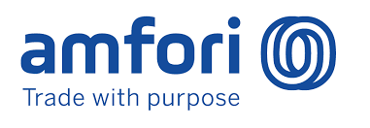
Bluesign™ is a standard for environmental health and safety in the manufacturing of textiles, and garments bearing the sign are made from the most environmentally friendly, socially conscious fabric available. The Switzerland-based organization, officially known as Bluesign Technologies AG was founded to partner with manufacturers to make a textile product with the lowest possible environmental burden, resource-improving production as well as augmented safety for workers and consumers. It provides independent auditing of textile mills, examining manufacturing processes from raw materials and energy inputs to water and air emissions outputs. Bluesign suggests ways to reduce consumption while recommending alternatives to harmful chemicals or processes where applicable. Patagonia was the first company to partner with Bluesign, and most of the brands at EcoSki are Bluesign accredited or use Bluesign accredited materials.
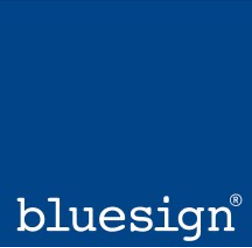
Certified B Corporations are legally required to “consider the impact of their decisions on their workers, customers, suppliers, community and the environment”. Patagonia become the first B-Corp in 2012 and Picture is another of our EcoSki featured brands to hold this certification, which measures a company’s commitment to reducing environmental impact and supporting social justice as well as its governance and engagement within their communities. EcoSki’s aim is to work towards becoming a Certified B Corp in it’s own right.
The sustainable form of bamboo fabric is made through the lyocell process, which uses non-toxic solvents and closed-loop manufacturing to produce a viscose fabric from bamboo fibres. Not all bamboo viscose is sustainable - viscose/rayon process is very chemical-intensive. Bamboo is fast and relatively easy to grow, both in its native China and other regions, which helps combat global deforestation. However, as it is an invasive plant, bamboo needs to be carefully managed to protect local habitats.
Better Cotton Initiative (BCI)
The Better Cotton Initiative (BCI) is a global not-for-profit organisation and the largest cotton sustainability programme in the world. It seeks to make global cotton production better for the people who produce it, better for the environment it grows in and better for the sector’s future. Look out for it on the label when buying cotton to make a positive choice.

Biodegradable means a product can be broken down by microorganisms, such as bacteria and fungi, thus avoiding pollution. Plastic and oil-derived fibres like polyester and nylon take hundreds of years to break down and release harmful chemicals and microplastics in the process. Many skiwear brands use biodegradable materials in their products, such as wool (Icebreaker, Mons Royale, Woolpower, Ortovox) and recycled down (Patagonia). Look for biodegradable packaging too.
Biodiversity refers to every living thing on Earth, including plants, bacteria, animals, and humans. It can be used more specifically to refer to all of the species in one region or ecosystem. Much of the Earth’s biodiversity, however, is in jeopardy due to human consumption and other activities that disturb and even destroy ecosystems. Pollution, climate change, and population growth are all threats to biodiversity.
Biodiesel is made from materials such as vegetable oils, animal fats and even soybean oil. Biodiesel can be used in an ordinary diesel engine.
Is the energy produced from burning biomass.
Biofuel is made from natural materials, normally from recently harvested plants. Biogas, Biodiesel and Green Diesel are all biofuels. Biofuel can be gas, liquid or solid.
Biogas is the gas (primarily methane and carbon dioxide) captured from the breakdown of organic matter (such as food waste, animal manure or even sewage) in an anaerobic environment (anaerobic means without oxygen).
Biomass is defined as all plants and plants-derived materials including feedstock such as vegetable oils, forestry residues, wastes from pulp and paper mills, urban wood wastes, animal manure, plants, grains, and animal-based oils.
The biosphere refers to all parts of Earth where life exists. (Bios = life in Greek).
Bio-Sourced refers to materials derived from plants and other renewable agricultural, marine, and forestry materials, such as sugarcane, tapioca, castor oil and cellulose.
Biosynthetic fibre is a material which consists of polymers made from renewable resources, either wholly or partly.
Materials derived from plants and other renewable agricultural, marine, and forestry materials, such as sugarcane, tapioca, castor oil and cellulose.
Referred to responsible leather products. A by-product of the meat industry means the animal was not killed directly for it’s leather. The leather was the waste product of the meat.
bioRe® is an organic cotton brand developed by the bioRe® Foundation, which promotes organic farming, fair trading, and non-toxic textile production. Besides preserving natural resources, the Foundation conducts participatory cotton seed research to develop non-GMO organic cotton cultivars. As the exclusive licensee of bioRe®, Remei AG gives bioRe® cotton farmers a purchase guarantee and pays a 15 percent premium for their efforts in organic production. Remei-produced textiles are CO2-neutral. It is used in Mammut’s casanna range.

A carbon credit is a permit or certificate allowing the holder, such as a company, to emit carbon dioxide or other greenhouse gases. The credit limits the emission to a mass equal to one ton of carbon dioxide. Carbon credits incentivise businesses to cut their greenhouse gas emissions.
Burning oil, coal and gas produces carbon emissions, while deforestation is reducing the amount of carbon absorbed by trees and plants. This is resulting in global warming, caused by the increased carbon dioxide concentrations in the atmosphere.
Your carbon footprint is the amount of carbon emitted as a result of your activities. Products also have a carbon footprint, with its size depending on their manufacturing processes and transportation. Check out a
carbon footprint calculator online and then contribute money to a relevant scheme to offset your own footprint.
Carbon offsetting means investing in one or more environmental projects to balance out greenhouse gas emissions and become carbon neutral. However, it does not address the central issue, which is reducing or removing carbon emissions in the first place.
Carbon offsetting could mean using regeneration processes, like donating a portion of sales to plant trees, or even investing in carbon neutral shipping. Buying local and, for food, in season, is one way to reduce your carbon footprint. A growing number of companies, particularly airlines, offer individuals the chance to offset their carbon footprint.
Carbon Price / Equivalent Carbon Price
The cost per unit placed on CO2 emissions, set by the trading of carbon allowances within an emissions credit trading scheme. The UK’s post-Brexit scheme started trading on May 19, 2021 as the UK left the well-established EU scheme.
Carbon tax is levied by some governments on companies that burn coal, oil, or gas. Its goal is to reduce greenhouse gases, which cause global warming.
Carbon Neutral / Net Zero Carbon
This means balancing or offsetting carbon emissions with carbon removal – or eliminating carbon emissions altogether (the transition to a “post-carbon economy”).
Carbon border adjustment mechanism (CBAM)
This is a levy on carbon emissions designed to hit countries making insufficient efforts to combat climate change, currently being considered by the European Commission. It is due to detail its proposals in July 2021.
Chlorofluorocarbons are now banned as their use in aerosols and fridges, amongst other things, caused damage to the Earth’s ozone layer.
Circular design is an approach to product development that enables products and materials to be re-used, recycled and regenerated. Circular products are designed to minimise waste and pollution, be used for as long as possible, and enable regeneration of their materials into new resource streams, thus ‘closing the loop’ in the fashion industry. This helps to preserve the Earth’s resources, but global production and consumption also needs to be cut.
Circular economy means reducing waste and pollution by keeping materials, products and resources in use for as long as possible, through recovery and regeneration. In contrast to the current take-make-use-dispose model, circular systems consider what happens to materials and products at their end-of-life stage, when they are discarded or can no longer be re-used.
Circular fashion is about designing waste and pollution out of our clothes, and ensuring they help regenerate natural systems at the end of their (long) lives. Avoiding off-cut waste is a key part of this aim. It is based partly on
William McDonough and Michael Braungart’s Cradle to Cradle design philosophy.
Greta Thunberg and thousands of children around the world are demanding Climate Action, which means they want governments to actually put policies in place to reverse the effects of climate change (or anthropogenic global warming, AGW).
People who demonstrate, normally peacefully, and advocate for or work towards greater protections of the natural environment and pursue strong climate action by world leaders.
When Earth’s climate demonstrates new weather patterns that last for a few decades, this is classed as climate change. Much of the recent climate change can be attributed to the increased use of fossil fuels resulting in increased carbon dioxide in the atmosphere.
‘Closed loop’ manufacturing is the process by which a product or material can be used and then turned into a new product indefinitely without losing its properties during the recycling process. In apparel, this means that all new clothes are made from preexisting clothes and textiles. Closed loop processes avoid waste, and you as a consumer can drive change through choosing products made in this way. Appropriate recycling collections are also key for closed loop to have its intended environmental impact. Many of the brands EcoSki stocks use recycled polyester in their clothing, such as Patagonia’s ski jackets.
Some brands are using spent coffee grounds (otherwise heading for landfill) in their clothing. Mixed with recycled nylon or polyester it can be alternative way of utilising waste and turning it into something new. Coffee has natural deodorising and antibacterial properties.
Compostable materials are materials that have been certified to break down completely into non-toxic components (water, carbon dioxide, and biomass) that will not harm the environment, given the right conditions. Be aware, though, that some items labelled as compostable, such as compostable plastics, require industrial composters (such as those used by many UK councils) and can’t go on your home compost pile.
A consumer who engages in the economy with more awareness of how their consumption impacts society and the environment at large. At EcoSki, we are very much focused on being as conscious as possible in all areas. We have done the legwork for you to select the skiwear and accessories that offer the smallest social and environmental impact available.
Although it is a natural fibre, conventional cotton has a highly detrimental environmental and social impact, due to its water consumption, use of toxic chemicals and GMOs and the often poor treatment of cotton farmers and workers. Organic cotton is cotton that is produced and certified to organic agricultural standards. Its production sustains the health of soils, ecosystems and people by using natural processes rather than artificial inputs, and it does not use toxic chemicals or GMOs (genetically modified organisms). It does however still require a lot of water. At EcoSki, we select brands which choose organic cotton when needed in their products, such as Patagonia and Amundsen.
Corporate Social Responsibility (CSR)
Corporate social responsibility is a part of corporate governance requiring businesses to take into account the impact of their practices on society and the environment. The brands that EcoSki stocks all have industry-leading CSR standards.
An umbrella term for anything made from plants, which includes cotton, linen (flax seeds), hemp, rayon (aka viscose), lyocell.
is closely linked to veganism: it refers to products, usually cosmetics, that have not been tested on animals. Lush, for example, is a well-known cruelty-free company. It is worth noting, however, that cruelty-free doesn’t always mean vegan, so if you want your clothes and accessories entirely animal-free, don’t rely on this as the standard.
This is the practice or ethos of including or involving people from a range of different social and ethnic backgrounds and of different genders, sexual orientations etc. Sustainability is closely linked with diversity and inclusivity, as greater representation, inclusion and engagement of the workforce produces stronger outcomes. It’s been shown that
“companies with more diverse leadership have better environmental compliance reporting, in addition to stronger financial returns. Source: Vogue Business (insert link:
Sustainability in fashion relies on embracing diversity | Vogue Business)
Downcycling is the process where unused products are used to produce new items of lesser quality. In the textiles industry, this means unwanted fabrics being broken down and made into fleece or insulation, for use as filling in the car, interiors or pet industries.
Decomposition is the decaying or rotting process of organic matter. If referring to chemical compounds, such as polyester, it means breaking down into its component parts.
Deforestation is the permanent removal of trees to make room for other land-uses such as agriculture or grazing, or using the timber for fuel, construction or manufacturing. Forests absorb carbon into the air but if they are cleared, or even disturbed, that carbon is released as carbon dioxide and other greenhouse gases. This has a devastating impact on global warming. Forests are home to well over half the world's land-based species of plants and animals, so deforestation causes loss of wildlife and biodiversity. It can also increase the risk of floods.
Dioxins are highly toxic chemicals that are extremely harmful to health. Known as Persistent Environmental Pollutants (POP’s) because they remain in the soil, air and water for many years. They’re produced by waste incineration and the burning of fossil fuels. They’re also an unintentional by-product of many industrial processes involving chlorine, such as chemical and pesticide manufacturing, treatment of hazardous material and pulp and paper bleaching.
A dope-dyeing process involves adding pigments at an earlier stage, during the spinning step. This method uses less water, chemicals and energy and significantly reduces emissions of CO2. The colors also last longer.
Solution-dyed fabrics have the colour added to the material right at the very start - when the fibres are being created and spun. Solution dyeing has been estimated to save 80% of water compared to conventional dyeing techniques. More than that amount of electricity is saved, and a fraction of the CO2 normally released during dyeing makes it into the atmosphere.
Eco means ‘not harmful to the environment,’ or ‘ecologically friendly’. It is a widely used marketing term with varying (if any) levels of regulation or standards, and can be misleading as it may mean one or more part(s) of the product, packaging or manufacturing process is eco but other parts may not be. The eco label is a good place to start in choosing the least harmful product, but it is important to check the label or research further to find out more about a product’s eco credentials.
A term to describe the destruction of the natural environment, particularly when the destruction is deliberate.
Showing concern for the environment.
Ecological Breakdown / Collapse
An ecological breakdown is when an ecosystem has been affected in such a way that it can no longer support all organisms, which can lead to mass extinctions.
An ecosystem is a geographic area where plants, animals, and other organisms, as well as weather and landscape, work together to support life. The living and non-living are linked together through nutrient cycles and energy flows.
Eco Friendly means ‘not harmful to the environment’ or ‘ecologically friendly’. It is a widely used marketing term with varying (if any) levels of regulation or standards, and can be misleading as it may mean one or more part(s) of the product, packaging or manufacturing process is eco but other parts may not be. The eco label is a good place to start in choosing the least harmful product, but it is important to check the label or research further to find out more about a product’s eco credentials.
Econyl® is regenerated nylon made from waste such as fishing nets and industrial waste from landfills and oceans, which would otherwise pollute the Earth. It’s used in skiwear from brands EcoSki stocks, such as Patagonia. It was developed by Aquafil and 2021 sees Econyl® celebrating its 10th anniversary. Econyl® is exactly the same as brand new nylon and can be recycled again and again – closing the loop and delivering sustainable products.
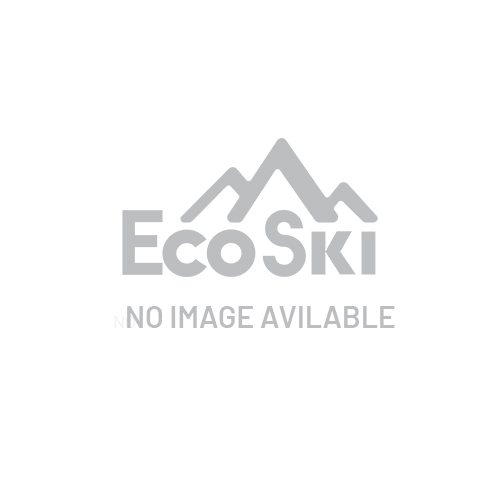
Italian cotton yarn made from recycled textile waste.
End of life, as the name suggests, is when a product is no longer usable or wanted. Rather than throw it away, sustainable solutions include extending an item of clothing’s life by repairing it or reselling it (or sharing / renting it), or recycling or repurposing it by using the fabric in the production of new clothes or other products such as furniture. Many manufacturers increasingly consider end of life in their design, using materials that can be broken down by available technologies. Breaking down low-quality or blended fabrics, which are used in a high proportion of textiles, is a huge challenge that is being addressed but is not yet economically viable, as of 2021.
Ethical production focuses on the good health, safety, and fair compensation of the workforce. It refers to the production of a textile product over its whole life cycle, from the raw materials, through the finishing processes, to the construction. It is a more broad-reaching term than fair trade, where the raw materials may have been purchased in a fair trade way, but the garment constructed by a low-paid and / or poorly-treated garment worker.
European Outdoor Conservation Association
The European Outdoor Conservation Association is a group of businesses in the European outdoor industry who have come together to raise funds to put directly into conservation projects worldwide (except USA and Canada) - to give back to the great outdoors. These include a number of number of ski brands such as Ortovox, Marmot, Haglofs and Mammut (all stocked at EcoSki)
Fair Labour Association Workplace Code of Conduct
The FLA Workplace Code of Conduct defines labour standards that aim to achieve decent and humane working conditions. The Code’s standards are based on International Labour Organisation standards and internationally accepted good labour practices.
Fairtrade You’ve probably heard about fair trade before or have seen certifications on products at the supermarket.
Fair trade refers to the general movement, which encompasses many different organisations with the shared aim of supporting producers and protecting workers’ rights and the environment. Fair trade describes a brand or an individual product that has been certified and labelled by an independent organisation because it meets certain standards. Fairtrade, on the other hand, specifically refers to the certifying and labelling organisation Fairtrade International. Fairtrade International is an independent, non-profit organisation that works to connect disadvantaged farmers and workers with consumers, promote fairer trading conditions and empower farmers and workers to combat poverty, strengthen their position and take more control over their lives.

Fair Wear Foundation (FWF) is a non-profit organisation that works with garment brands, factories, trade unions, NGOs and governments to improve working conditions for garment workers in 11 production countries across Asia, Europe and Africa.
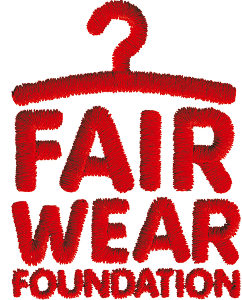
This material, often found in outdoor jacket hoods, looks and feels like animal fur, but without the cruelty to animals. However, it impacts the environment when made, as it most commonly is, from synthetic, or virgin petroleum-based fibres, usually acrylic or polyester. Their production involves high energy use, greenhouse gas emissions and microfibre pollution. A more sustainable alternative is faux fur made from blends of bio-based plastics and recycled polyester, which is used by brands EcoSki stocks, such as Protest.
FCS-certified means that the fabric is made from tree fibres that come from sustainable sources in that they do not originate from endangered or ancient forests. Instead, they come from well-managed forests and large-scale areas of conservation. TENCEL and MONOCEL products, for example, are often made from FSC-certified eucalyptus and bamboo respectively. For more info on FSC, the Forest Stewardship Council, head to the official website.
Fossil fuels - coal, oil, and natural gas – were formed over millennia from decomposing plants and other organisms, buried beneath layers of sediment and rock, to become carbon-rich deposits. These non-renewable fuels supply about 80 percent of the world’s energy. They provide electricity, heat, and transportation, while also feeding the processes that make a huge range of products, from steel to plastics. When fossil fuels are burned, they release carbon dioxide and other greenhouse gases, which in turn trap heat in our atmosphere, making them the primary contributors to global warming and climate change. All the brands we select for EcoSki are committed to limiting or wiping out their use of fossil fuels, by sourcing from sustainable, non-oil-based raw materials and using renewable energy.
Global warming is the long-term heating of Earth’s climate system observed since the pre-industrial period (between 1850 and 1900) due to human activities, primarily fossil fuel burning, which increases heat-trapping greenhouse gas levels in Earth’s atmosphere. The term is frequently used interchangeably with the term climate change, though the latter refers to both human- and naturally produced warming and the effects it has on our planet. It is most commonly measured as the average increase in Earth’s global surface temperature. Source:NASA
Global Traceable Down Standards
The NSF™ Global Traceable Down Standard (Global TDS) ensures that down in apparel, household, and commercial products comes from a responsible source that respects animal welfare and can be fully and transparently traced. Originally developed by outdoor brand Patagonia, the standard is now managed by NSF International (National Sanitation Foundation), an American product testing, inspection and certification organisation.

Global Recycling Standards
The Global Recycled Standard (GRS) is an international, voluntary, full product standard that sets requirements for third-party certification of Recycled Content, chain of custody, social and environmental practices, and chemical restrictions. The goal of the GRS is to increase use of Recycled materials in products and reduce/eliminate the harm caused by its production. It provides assurance that materials in the final product are actually Recycled and processed more sustainably. The Global Recycled Standard is intended for use with any product that contains at least 20% Recycled Material.
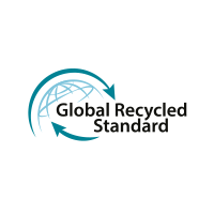
GOTS (Global Organic Textile Standard)
GOTS is a textile production certification that limits the use of toxic bleaches, dyes and other chemical inputs during the production process of textiles.
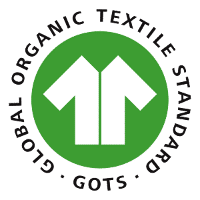
Greenwashing is the use of marketing to portray an organisation’s products, activities, or policies as environmentally friendly when they are not. It’s a growing concern nowadays as some companies are trying to benefit from the growing demand for sustainable and ethical clothes. Companies usually market supposedly “environmentally-friendly” initiatives, like having one tiny eco-friendly line, using recycled packaging and switching to LED lights in their offices while not addressing critical environmental and labour issues.
is a natural bast fiber obtained from the inner bark (also called skin or bast) of industrial hemp, one of the oldest agricultural crops and one of the first plants spun into textiles valued for their strength. Hemp is very fast and easy to grow, adaptable to most conditions, with little need for fertilizers or pesticides and irrigation. Unlike most other crops, hemp growing enriches and purifies rather than depletes the soil it grows in. Hemp has no specific requirements on location or soil quality and has a higher crop yield per acre in comparison to all other fibers. In addition, all parts of the plant can be used, making food, textiles or building materials. The processes of extracting hemp fiber from the plant are the same as for other bast fibers such as
linen or
bamboo linen, and include dew retting, retting in ponds, tanks or under running water, and also chemical retting. When the fiber is extracted from the plant, the production of hemp cloth is a mechanical process that involves spinning into yarns and weaving into fabric.
The Intergovernmental Panel on Climate Change (IPCC) is the United Nations body for assessing the science related to climate change.

Landfill is where waste is buried under layers of earth. It is estimated that only around a quarter of used clothing globally gets reused or recycled, meaning approximately 75% of discarded clothes ends up either in incineration or in landfills. Both of these produce millions of tonnes of greenhouse gas and other pollutants. In the UK, 350,000 tonnes, that’s around £140 million worth of used but still wearable clothing, goes to landfill, every year, according to Clothesaid. Oil-based fabrics such as polyester and nylon take hundreds of years to decompose, and release microplastics into the environment in the process. Even natural fibres like wool and cotton, which would break down much more quickly if exposed to air, take longer and release greenhouse gases as they decompose when in landfill.
Living wage is the bare minimum wage required for workers to live a decent life. It’s different from the legal minimum wage, which is usually far below the living wage. For example, in Bangladesh, Vietnam, and Indonesia – where many clothes are manufactured - typical wages are only one quarter to one half of what a worker needs for a decent life, according to Oxfam.
Mulesing of sheep is the process of removing folds of skin from the tail area of a sheep, intended to reduce fly strike. It is considered an unethical practice by many textile industry participants.
Microscopic pieces of plastic that are released every time our synthetic clothes are put in the washing machine. Each time we run our machine, hundreds of thousands of microfibres are flushed down the drain. Many reach oceans and beaches where they can remain for hundreds of years. They are also swallowed by fish and other sea life then travel up the food chain and end up on our plates. It is estimated by the IUCN Report that up to 31% of marine plastic pollution comes from tiny particles released from households and industrial products as opposed to larger plastic items that degrade once they reach the sea. Of this they estimate 35% comes from washing synthetic textiles.
Microplastics or microfibres
Microplastics or microfibres refer to plastic particles smaller than 5mm. Synthetic clothes, which are one of the largest sources of environmental pollution, are responsible for more than one-third of all microplastics polluting our waters. In fact, on average, a whopping 9 million synthetic microfibres go down the drain in an average load of washing in Europe! As well as limiting these fabrics in your wardrobe, you could use a GuppyFriend washing bag to wash synthetic or synthetic-mix clothes, which capture up to 90% of this, according to the company.
Mono materials are materials that contain only one type of fibre, such as 100% cotton or 100% polyester. Mono materials are much easier to recycle than blend materials.
A type of non toxic viscose/rayon fabric. It’s production isn’t quite as toxic but can still lead to deforestation.
Monocel is a yarn made from lyocell bamboo fibre and works as an eco-friendly alternative to conventional cotton.
Naturetexx Plasma is a technology for easy-care merino used by brands such as Point 6. Powered by renewable energy8, with air and electricity as its raw materials, it is the ecological alternative to chlorine-based chemical treatments for wool to make it machine washable.
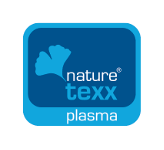
Natural materials are either cellulose- or plant-based (like cotton, hemp, linen) or protein- or animal-based (wool, silk, leather, down). You can’t assume natural is always good though, in terms of the environmental impact. Conventional cotton production is highly resource-intensive, with major negative social and environmental impacts (see Cotton, above in this Glossary). Animal-based materials can also impact animal welfare and the environment. For example, there is often a heavy use of chemicals in their processing. Down is often procured by the cruel practice of live-plucking. EcoSki’s stocked brands use responsibly-sourced down.
Nylon is the second most-produced synthetic fibre in the world after polyester. Like all virgin petroleum-based synthetic fibres, its production is harmful to the environment due to heavy use of non-renewable resources. Nylon takes hundreds of years to break down in landfill. Sustainable alternatives include Econyl® and DuPont™’s Sorona® (See entries in this Glossary)
When the amount of greenhouse gas produced equals the amount removed from the atmosphere. Net zero is important as it’s the best way to tackle global warming.
When the amount of greenhouse gas removed from the atmosphere is greater than what is produced.
Non Toxic literally means ‘not poisonous or toxic’, but in terms of product labelling, it is unregulated and often used as a marketing term. While it is a good place to start, look for more information to inform your choice.
An NGO (non-governmental organisation) is a non-profit group that functions independently of any government. NGOs, sometimes called civil societies, are organised on community, national and international levels to serve a social or political goal such as humanitarian causes or the environment. An ENGO (environmental non-governmental organisation) is an NGO in the field of environmentalism, with well-known examples being Greenpeace and the World Wildlife Fund for Nature.
A general term for materials made from naturally occurring substances. They are biodegradable.
Oeko-Tex Certified Fabric
Oeko-Tex is a worldwide consistent, independent testing and certification system which ensures chemical use is in line or surpassing national and international standards.
Off-cut waste is scraps of fabric left after garments have been cut out. Though many scraps are tiny, collectively they contribute to a huge volume of textile waste globally. As there aren’t typically widespread or economically incentivised channels to reuse this waste, much of it is incinerated or dumped in landfill, both of which are environmentally harmful means of disposal. Keeping this off-cut waste in the supply chain by repurposing it is a key aim of brands and technologies aiming for circular economy, or zero waste.
Organic refers to raw materials that are not genetically modified (GM), and have been grown without any chemical pesticides and insecticides. This reduces the harmful impact on the environment of these crops. If a product is labelled ‘organic’, it must contain at least 95% organic materials. Buying organic cotton is a much more sustainable choice than non-organic cotton (See Cotton), which has high energy and water requirements and contributes to soil degradation. Look out for BCI (Better Cotton Initiative) or GOTS (Global Organic Textile Standard) (both included in this Glossary) certifications on the label.
Organic Cotton Accelerator
Organic Cotton Accelerator is a global platform committed to bringing integrity, supply security and measurable social and environmental impact to organic cotton. Organic Cotton Accelerator is the only multi-stakeholder organisation fully dedicated to organic cotton. See also Cotton / Organic Cotton.

Based upon the Responsible Wool Standard (RWS), which is a voluntary standard that addresses the welfare of sheep and the land they graze on, the OWP takes an even more extensive approach. The regular OWP audits focus upon animal welfare, farm and land management, and slaughter and transport. More than 60 indicators are checked regularly on the farms by a certified, independent auditor. These include a ban on mulesing, which is the practice of removing parts of a sheep’s skin from its tail area to prevent flystrike.

Peat is plant matter that has been partially decomposed in the wet, acidic conditions of bogs and fens. It is hugely important to our planet, for lots of reasons, as described by The National Trust: it acts as a carbon store, it is a great habitat for wildlife, it has a role in water management, and preserves things well for archaeology. Dry peat – which results from drainage and cultivation of peatlands - releases carbon dioxide and is one of the biggest sources of greenhouse gas. If you buy compost, ensure it is peat-free.
Bottles made from a type of plastic called PET, or Polyethylene terephthalate, which is derived from crude oil and natural gas, used for drinks and many other products. They take up to 450 years to biodegrade. They are fully recyclable, and can even be made into clothing, such as by Dinoski and Patagonia.
A pesticide is a substance, normally chemical, which kills insects and organisms which may cause damage to crops or plants. Some pesticides are designed to deter ‘pests’, but many just wipe them out. Pesticides can cause damage to the soil and get into waterways – and they end up on our plate. Pesticides are harmful to nearby ecosystems and can affect our endocrine system and be linked with certain cancers.
are man-made materials made from a wide range of organic polymers that can be moulded into shape while soft, and then set into a rigid or slightly elastic form. In the apparel industry, plastics include nylon, polyester, acrylic and polyamide. The majority of plastics are fossil-based organic polymers obtained from petrochemicals. In the apparel industry, commonly used plastics include polyester, polyamide and acrylic. Plastic materials never break down completely, but ‘decompose’ into microplastics, thus causing plastic pollution globally, regardless of how it is disposed of, whether incinerated or buried in landfill, and even if it is recycled.
Recycled plastic fibres are still a preferable to virgin oil-based fibres as they use much fewer resources in their manufacturing and do not further deplete fossil-based resources. Alternatives to plastic are emerging, known as bioplastics (biopolymers derived from renewable sources such as cellulose, vegetable fats and oils, corn, pea or potato starch, sugars from sugar cane and sugar beets), but these still represent only a tiny proportion of the market.
Is waste generated after a product has reached its target user. Examples include used and worn-out clothing and accessories, but also valuable new items that were purchased and discarded without having ever been used.
Is waste generated before a product has reached its target user. Examples include fabric and leather offcuts from the manufacturing process as well as excess stock of fabrics and unsold finished products.
Nylon is a well-known type of polyamide, which is a material made from crude oil in a process called condensation polymerisation. This releases high quantities of nitrous oxide into the atmosphere, which is 300 times more potent than CO2. Products made from polyamides take hundreds of years to break down and release microplastics into the environment in the process.
Polyester is a man-made fabric derived from petroleum. It’s the most common synthetic fibre in the world and, with cotton, the most used in the apparel industry. Its production is highly energy-intensive, resulting in high greenhouse gas emissions, and its disposal further damages the environment as it never completely breaks down and releases microplastics in the process. Polyester also releases microplastics into the water system every time it is washed.
PFC is an abbreviation for two related sets of chemicals, perfluorinated chemicals and polyfluorinated chemicals. They include hundreds of substances which are great at repelling water, dirt and oil, making them ideal for durable water-repellent finishes (DWR) on outdoor clothing. However, released into the air during manufacturing and during their use, PFCs can be harmful to humans and the environment. PFCs are not natural and they break down very slowly, making it easy for their concentration to build up over time in our bodies, in rivers, the soil, and the snow. PFC waterproofing technologies are available or are in development. GoreTex have introduced their own PFC free version and their goal is to be 100% PFC free by 2023. Teflon EcoElite™, used by skiwear brand Picture is another fabulous alternative. Being PFC free was our initial bottom line requirement. We do however still include one range with PFC’s. Please read their DWR article here. We hugely admire and respect Patagonia’s transparency and we fully support them on their mission to find an alternative they are confident will be just as durable and efficient.
Polyester/Recycled Polyester
While polyester uses petrochemical products, recycled polyester uses PET as the raw material, and is often called rPET. Patagonia was a pioneer in using clear plastic bottles (made from PET) in its outerwear (since 1993). Dinoski’s children’s snowsuits are made from 22 recycled plastic bottles. Recycled polyester not only cuts the number of plastic bottles ending up in landfill, it uses 30-50% less energy to produce. While it is still essentially derived from oil and does not biodegrade, it is a preferred fabric in terms of sustainability.
Not harmful to the planet.
is the action of converting waste into something new. In the fashion industry, like in many industries, we hear a lot about recycled plastics. Some apparel companies have started looking at recycling plastic into new clothes: for example, turning plastic bottles into yarn to make fleece sweaters or leggings. This keeps some plastic out of landfill, but the product is still ultimately made from crude oil, and will eventually cause microplastic pollution as it doesn’t biodegrade.
Probably our favourite green word of this whole list. Rewilding is all about restoring wild nature. There’s a lot of talk about tree planting in the UK, which is a positive step, but the regimented planting of trees using plastic tubes could be seen as unsightly and wasteful. Rewilding is definitely the way forward! Check out
https://www.rewildingbritain.org.uk/ for more information and how you can support this movement.
Raw materials are sourced from specific suppliers which meet environmental and social responsibility standards; transparent sourcing, i.e. the consumer knows where their product has been sourced from.
A product that is made by workers treated fairly, in factories that aim to minimise the environmental and social impact of their manufacturing.
A renewable resource has an endless supply, such as solar energy, wind energy, and geothermal pressure. Examples of renewable sources used in the textile industry include starches, sugars, and lipids derived from corn, sugar cane, sugar beets, and plant oils.
REACH stands for Registration, Evaluation, Authorization and Restriction of Chemicals). Implemented in 2007, it is an EU legislation designed to protect consumers, wildlife and the environment against the use of hazardous chemicals. Textile (and all other) manufacturers must comply with this legislation to be able to import and sell products within the EU.
According to ChemTrust, a charity that aims to ensure that chemicals which cause harm to humans or the environment are substituted with safer alternatives, identifies two particularly important issues outstanding in REACH: 1) how hormone disrupting chemicals are treated under the authorisation procedure and 2) the agreement of criteria for a chemical to be considered to have endocrine disrupting properties. ChemTrust also states that “REACH also does not adequately deal with the potential mixture effect, whereby several substances which act on the same target organs may add together to cause effects, even when each substance by itself is below the level expected to show effects.
Recycled cotton prevents additional textile waste and requires far fewer resources than conventional or organic cotton. This makes it a great sustainable option. Cotton can be recycled using old garments or textile leftovers. The quality of the cotton however is often much lower than new cotton. Recycled cotton is therefore usually blended with new cotton. The production of recycled cotton is still very limited.
Recycled down is goose and duck down that is reclaimed from cushions, bedding and other used items that can’t be resold - and thus ends up in landfill - and used as insulation in clothing such as winter or ski jackets. EcoSki features many ski jackets insulated with recycled down, see Patagonia, Amundsen, Mammut and Marmot. Recycled down not only has a lower environmental impact, it is also avoids using down obtained from inhumane farming practices such as live plucking and force feeding.
Responsible Down Standards
The Responsible Down Standard ensures that down and feathers come from ducks and geese that have been treated well. This means enabling them to live healthy lives, express innate behaviours, and not suffer from pain, fear or distress. The standard also follows the chain of custody from farm to product, so consumers can be confident that the down and feathers in the products they choose are truly RDS. The Responsible Down Standard is an independent, voluntary global standard, which means that companies can choose to certify their products to the RDS.

Responsible Wool Standard
The Responsible Wool Standard is a voluntary standard that addresses the welfare of sheep and the land they graze on. The goals of the Responsible Wool Standard are to provide the industry with a tool to recognise the best practices of farmers; ensuring that wool comes from farms that have a progressive approach to managing their land, practice holistic respect for animal welfare of the sheep and respect the Five Freedoms of animal welfare.

Regenerative Organic Farming
Regenerative Organic Farming methods aim to build healthy soil which helps draw carbon back into the ground. It is championed by brands such as Patagonia. Conventional agriculture using industrial techniques contributes up to 25% of the emissions driving the climate crisis. Regenerative Organic Certified (ROC) is a certification for food, fibre, and personal care ingredients. ROC farms and products meet the highest standards for soil health, animal welfare, and farmworker fairness.
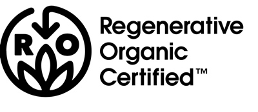
REPREVE is a fibre made from recycled materials (including plastic bottles), not only reducing the amount of plastic going into landfill but also emitting fewer greenhouse gases and conserving water and energy in the process. It is used by leading global brands to make athletic and fashion apparel and more. It offers properties like wicking, adaptive warming and cooling, water repellency, and more at the fibre level.
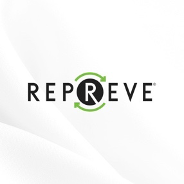
Recycled polyamide is a material that has been recycled from waste, such as old fishing nets, carpets, and waste from the manufacturing industry. Polyamide is a synthetic fabric made from strings of polyamide monomers (extracted from crude oil), such as nylon.
Recyclable means ‘able to be recycled’. It is important to check the label, as often parts but not all of a product or packaging are recyclable. In addition, local recycling facilities vary.

Rayon is made from plants but is not eco-friendly because of it’s toxic production and the deforestation associated with it. These tough plant materials are broken down through a chemical and mechanical process involving sodium hydroxide and carbon disulfide into a viscous liquid that is then spun into threads using sulfuric acid!
Second-hand is pretty straightforward: it refers to clothes that have had a previous owner and that were donated or resold. Second-hand is one of the most sustainable fashion options out there, as you’re reducing your impact by not buying “new”, and by giving a second life to items that would have otherwise ended up in a landfill. You can buy – or rent – top-quality second-hand skiwear through our preloved arm, EcoSki’d, and our EcoSki rental service.
refers to all the processes, businesses and people involved in turning raw materials into finished products and delivering them to customers. In the fashion industry, this can span several different regions, with the raw material being produced, processed and finished in different countries before being shipped to the intended market. This makes garment traceability difficult and complex, but more and more brands are becoming open and transparent about their supply chain and its ethical and environmental impact. The brands we at EcoSki stock pride themselves on their transparency.
Sustainable Apparel Coalition
The Sustainable Apparel Coalition's vision is of an apparel, footwear, and textiles industry that produces no unnecessary environmental harm and has a positive impact on the people and communities associated with its activities.
It has developed a suite of tools called The Higg Index that enables brands, retailers, and facilities of all sizes — at every stage in their sustainability journey — to accurately measure and score a company or product’s social or environmental sustainability performance.

Sugar cane fabric is made from a waste product of sugar production, bagasse, which is processed to produce textile rayon fibres such as viscose, modal and lyocell. Although the fabric is derived from organically occurring polymers, the chemicals, water and energy used in processing have a significant environmental impact and sugarcane farming often contributes to deforestation. However, sugar cane fabric uses a biological process to produce the fibres, rather than harmful chemicals, and has a has a much lower energy consumption.
Du Pont Sorona is a fabric derived from sugarcane and used in clothing and carpets. DuPont’s Bio-PDO compound turns a formerly chemical process into an eco-efficient biological one, with significantly lower energy use (30-40%) and greenhouse gas emissions (56-63%) than nylon production. At present, 37% of the polymer is made using annually renewable plant-based ingredients.

Schoeller Textil AG specialises in the sustainable development and production of innovative textiles and textile technologies, used, for example, by outdoor and skiwear brand Amundsen. A BlueSign-accredited company, one example of its product is schoeller®-ecodye, a specially developed auxiliary concept for polyester (PES) dyeing processes which uses less time, less water, and less energy.
Sustainability means ‘Avoidance of the depletion of natural resources in order to maintain an ecological balance.’ It also means not producing anything that the planet can’t naturally reabsorb. This means using natural materials, renewable energy and plastic-free packaging, and many skiwear and clothing brands are already delivering products that meet some or all of these standards. All the brands at EcoSki have been selected because they are not only reputable, fashionable and of the highest performance, but they also care about their environmental and social impact.
With the textile industry being the second biggest polluter in the world, every step towards sustainability is essential. The industry faces four main challenges: water consumption and contamination (in the production and washing of clothing); energy emissions (in the production of synthetic fabrics, for example, and in consumer clothes care); chemical usage (fertilisers and pesticides used in the production of raw materials like cotton); and waste creation (the levels of textiles that are incinerated or sent to landfill are enormous).
Sustainable Development Goals
Set by the UN (United Nations), the Sustainable Development Goals or Global Goals are a collection of 17 interlinked goals designed to be a "blueprint to achieve a better and more sustainable future for all”.
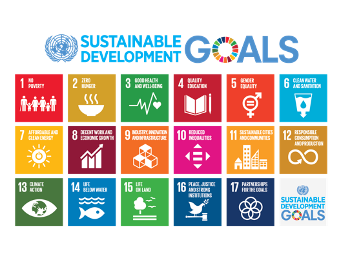
As the name suggests, the take-make-use-dispose model refers to producing and consuming products from resources and discarding them after use, without considering how the resources will be replenished or how the products can be regenerated after use. This is the opposite of the circular economy model which many businesses are now aiming to apply, using closed-loop recycling strategies, that aim to minimize the depletion of natural resources and reduce waste and pollution.
Transparency is the practice of openly sharing information about how, where, and by whom a product was made. This is very important in the apparel industry, where each part of the manufacturing process can happen in a different country, making traceability complex. Transparency gives customers the opportunity to make an informed and conscious choice about their purchase. All the brands we stock have transparent supply chains.
Traceability for a company means knowing its supply chains from start to finish, and being able to trace back each component of a product, from the raw material to the clothes tag and everything in between. This step is crucial to transparency: how can a company disclose information on a product if it doesn’t know all the steps involved in making it?
Tencel / Lyocell (Cellulose based fibres)
Lyocell is a type of Tencel and is arguably the most eco-friendly type of rayon. It’s a fibre extracted from sustainably grown eucalyptus using a unique closed-loop system which recovers and reuses the solvents used, minimising the environmental impact of production. It is gentle against the skin and efficient at moisture-wicking, making it ideal for underwear and baselayers.
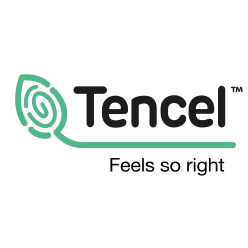
Textile Exchange is a global non-profit organisation which aims to minimise the harmful impacts of the global textile industry and maximise its positive effects by inspiring and equipping people to accelerate sustainable practices in the textile value chain. Working closely with all sectors of the textile supply network, Textile Exchange identifies and shares best practices regarding farming, materials, processing, traceability, and product end-of-life in order to create positive impacts on water, soil, air, animals, and the human population created around the world by the textile industry. Members include 210 companies and organisations from more than 25 countries. It is also a useful resource for consumers looking to find out more about sustainable fabrics.

Teflon EcoElite™ is the world’s first plant-based textile repellent, used by brands such as Picture for outerwear. It is a bio-based and non-fluorinated stain repellent technology that repels water and water-based stains and doesn’t impact feel or breathability. Teflon EcoElite™ finish is also up to three times more durable than other non-fluorinated, water-repellent finishes. Because many of its ingredients can be regrown and replaced over time, its production leaves a smaller environmental footprint.
The Ellen MacArthur Foundation
The Ellen MacArthur Foundation develops and promotes the idea of a circular economy. This means increasing use and reuse in business practices to deliver better outcomes for people and the environment. It aims to “replicat[e] the balance of the natural world, where nothing becomes waste and everything has value”. The Foundation works with, and seeks to inspire, business, academia, policymakers, and institutions to mobilise systems solutions at scale, globally. (Source:
The Ellen MacArthur Foundation)
Upcycling means turning waste into reusable material, but of better quality. Also based on the
Cradle to Cradle approach, it’s a concept we’ve been hearing about more and more. It is about re-using and re-purposing old items to make something new, like using old bedsheets to make a face mask. Upcycling removes waste from the system, requires less energy than recycling, and so has a better environmental impact. Plus it encourages creativity and innovation!
Vegan refers to products that have been made using zero animal products or by-products. For fashion, it means not using components like leather, wool, silk, cashmere, angora and more, as all these fibres come from animals. Look out for PETA-certified vegan products to ensure there are no hidden animal ingredients in your clothes and accessories. Animal welfare issues can often be linked to broader environmental issues.
If you are not vegan but are concerned with animal welfare, you can opt for animal-derived materials that are certified as ethically produced. For example, the merino base layers we stock at EcoSki, are made from ethically-derived wool, such as from Icebreaker. Look for ethical or ZQ-certified wool. Only growers who meet strict standards of animal welfare, environmental sustainability, fibre quality, traceability, and social responsibility are awarded the ZQ certification. It is used by brands such as Mons Royale.
Artificial or synthetic leather often made from polyurethane but can also be made from more sustainable materials such as pineapple leaves, cork, apple peels, other fruit waste and recycled plastic.
Water pollution is the contamination of water streams, lakes, oceans, groundwater, and sources of drinking water due to human activity. The textile industry is a major water polluter globally due to the heavy use of chemicals in manufacturing, and the pesticides and fertilisers used to grow crops, such as cotton. When synthetic (polyester, nylon etc) clothes are washed, they release chemicals and microplastics into the water system. Textile waste also pollutes water when dumped in landfill where chemicals and microplastics leak into waterways.
This means sending no waste to landfill, and also reducing the amount of recycling too.
In the fashion industry, ‘zero waste design’ means design which aims to minimise the cut-offs from garments (which are, on average, 15%) when they are laid out, for example by using cloth the appropriate width for the pattern pieces. It also refers to using fewer resources in the production of a garment.
Zoonosis (zoonoses or zoonotic diseases) is an infectious disease that has jumped from animals to humans. One way to avoid zoonotic diseases is to treat animals better and not have live animal markets or to eat wild animals. COVID-19 is a zoonotic disease, as is ebola.
ZQ is a wool certification standard for ethically produced wool. Only growers who meet strict standards of animal welfare, environmental sustainability, fibre quality, traceability, and social responsibility are awarded the ZQ certification. It is used by brands such as Mons Royale.

























